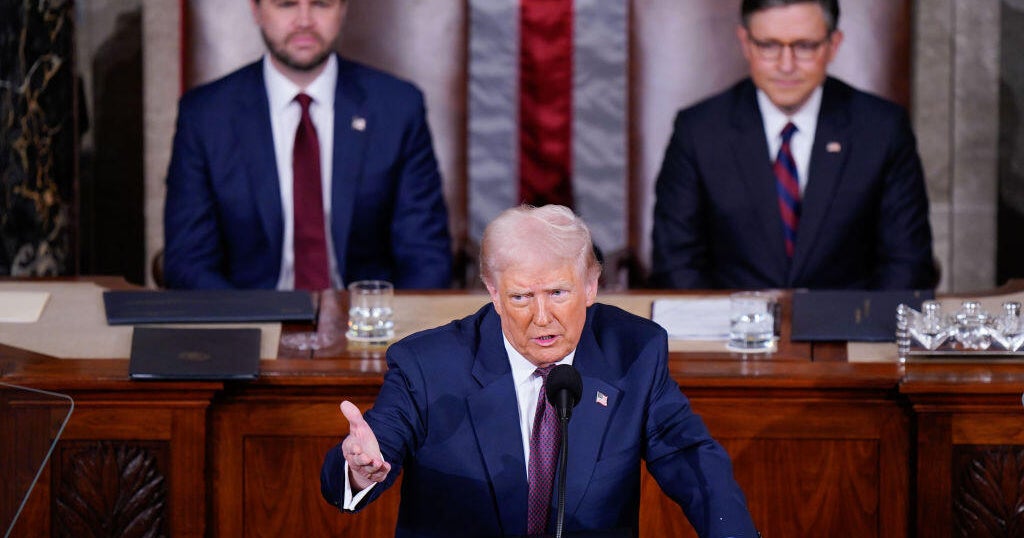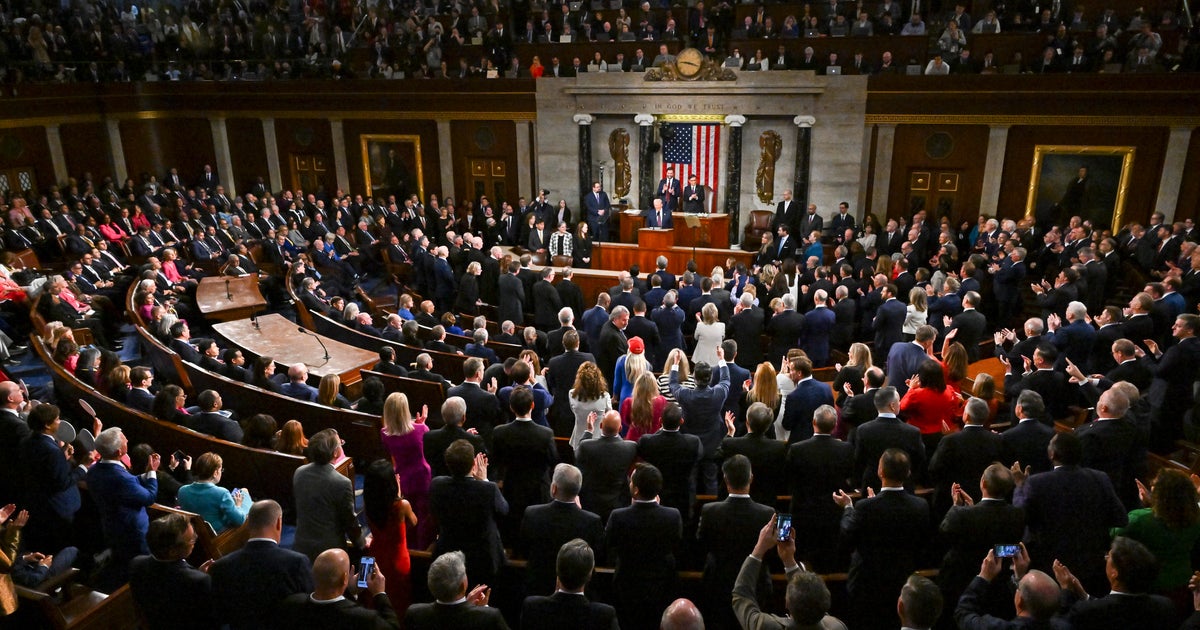Congress passes 5,593-page COVID relief and government funding bill; measure now heads to White House
Washington — Both chambers of Congress on Monday night passed a $900 billion relief measure designed to provide long-awaited assistance to Americans, small businesses and industries ailing from the coronavirus pandemic. The $900 billion package is paired with a $1.4 trillion omnibus spending bill that funds the federal government through September.
The House of Representatives vote was divided into two parts. Part One, which included the Defense; Commerce, Justice, Science; Homeland Security; and Financial Services sections of the omnibus, passed by a vote of 327 to 85. Part Two included eight spending bills — including the COVID relief bill — and passed by a margin of 359 to 53.
The measures were then bundled together and sent to the Senate, where the legislation passed by a vote of 92-6. The bill now goes to the White House for the president's signature to become law.
After months of unsuccessful negotiations, congressional leaders reached a deal on the coronavirus measure Sunday, ending the monthslong stalemate between Republicans and Democrats that delayed aid to those hardest hit by the public health crisis that devastated the U.S. economy.
"We will do some good with this legislation, but we must recognize that more needs to be done to crush the virus, to put more money in the pockets of the American people," House Speaker Nancy Pelosi said in remarks on the House floor Monday, adding that she expected a "strong bipartisan vote" on the rescue deal.
The legislative text of the hulking 5,593-page package was released shortly before 2 p.m. and lawmakers were bracing for a long night as they worked to pass the measure days before Christmas. The aid package included $600 in direct payments to most Americans, $300 per week in enhanced federal unemployment benefits until March 14, and more than $284 billion in loans for businesses through the popular Paycheck Protection Program. The relief measure also extends the moratorium on evictions until January 31 and provides more than $30 billion to accelerate the distribution of coronavirus vaccines.
The government spending deal also included a provision ending surprise medical billing, an issue with bipartisan support, and establishes a women's history museum and the National Museum of the American Latino.
The $600 checks are half as generous as the $1,200 payments distributed under the CARES Act in the spring. Americans who made less than $75,000 in 2019 are eligible for the full $600, with the payments tapering off for those who made up to $100,000, according to a summary of the legislation circulated by lawmakers and published by The Washington Post. Parents will also get $600 per dependent child, an increase from the $500 given under the CARES Act.
Treasury Secretary Steven Mnuchin told CNBC Americans could begin seeing the payments in their bank accounts as soon as next week.
"This is a very, very fast way of getting money into the economy," Mnuchin said Monday morning. "Let me emphasize: People are going to see this money at the beginning of next week."
Democratic and Republican congressional leaders expressed optimism Sunday the combined measures would be approved by both chambers of Congress swiftly. Pelosi called the deal a "first step" and predicted more relief will come once President-elect Joe Biden and Vice President-elect Kamala Harris take office in January.
Mr. Biden took to Twitter soon after the bill was approved, saying, "I applaud this relief package, but our work is far from over. Starting in the new year, Congress will need to immediately get to work on support for our COVID-19 plan. My message to everyone out there struggling right now: Help is on the way."
The House and Senate last approved a sweeping aid package addressing the economic havoc wrought by the pandemic in March, though the two chambers then put forth their own separate measures, which failed to garner enough bipartisan backing to pass. The White House and Pelosi spent the intervening months engaged in failed negotiations over another measure, though they disagreed on the size and scope of the package.
Republicans were pushing for the next bill to include liability protections for businesses, while Democrats wanted billions of dollars in federal assistance for state and local governments that took a financial hit because of the pandemic. In the end, neither priority was included in the targeted measure agreed to by congressional leaders.
Facing the fast-approaching end-of-year expiration of several key COVID relief programs, as well as a government funding deadline, the four congressional leaders — Pelosi, Senate Majority Leader Mitch McConnell, Senate Minority Leader Chuck Schumer and House Minority Leader Kevin McCarthy — gathered last week to hammer out a deal to fund the government and provide aid to those struggling because of the pandemic.
Talks hit a snag after GOP Senator Pat Toomey of Pennsylvania put forth language to curb the Federal Reserve's emergency lending authority, but he ultimately agreed to narrow the language to apply only to three lending facilities established by the CARES Act, the sprawling relief package passed in March.
To avoid a lapse in overall government funding, Congress approved stopgap funding measures three times that gave congressional leaders more time to finalize a deal and skirt a partial government shutdown. The second continuing resolution, which extended government funding through Monday, was approved by both chambers in a rare weekend session and signed by President Trump late Sunday. Yet another, extending funding through Monday, December 28, was signed by Mr. Trump early Tuesday.
Kimberly Brown and Jordan Freiman contributed to this report.



